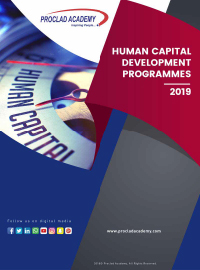Interviewing, Selection & Recruitment: Principles & Best Practices
| Ref No. | Dates | Venue | Fee (US$) | |
|---|---|---|---|---|
| HR 004 | 22 - 26 Mar 2020 | Dubai | 4500 | Register |
| HR 004 | 20 - 24 Sep 2020 | Dubai | 4500 | Register |
Interviewing, Selection & Recruitment: Principles & Best Practices
Introduction
Making the right decision in the recruitment process is critical to the success of any organisation. The Interviewing, Selection & Recruitment: Principles & Best Practices training course is designed to provide the participants with the skills and knowledge to ensure their interviewing style and practice maximises the success of the selection process.
This PROCLAD Academy training course develops the methodologies to successfully perform recruitment and selection assessment, and then explore individual competence of the decision makers. The training course will also demonstrate how to influence organisations to change their approach to recruitment and selection by constructing objective information and presentations.
The key features of PROCLAD Academy’s Interviewing, Selection & Recruitment: Principles & Best Practices training course are:
- Workforce Planning & Recruitment
- Assessment & Selection
- Performance Management
- Planning & Organising
- Decision Making
Learning Objectives
Attendance to PROCLAD Academy’s Interviewing, Selection & Recruitment: Principles & Best Practices training course will enable the participants to:
- Review the range of options available when considering recruitment
- Design effective job descriptions and person specifications
- Write effective interview questions
- Design recruitment activities
- Develop practical skills in interviewing techniques
- Make a confident selection decision
Target Audience
PROCLAD Academy’s Interviewing, Selection & Recruitment: Principles & Best Practices training course is suitable for, but not limited to:
- HR professionals who have the overall responsibility for recruitment and selection
- Professionals involved in assessing job requirements, performance issues and developing competency in members of staff
- Those who from time to time assess candidates during the recruitment process
- Professionals whose key accountability is the retention of key members of staff
- Recruitment Consultants who are involved on an ongoing or everyday basis
- Coordinators who are responsible for managing all of the resources during the recruitment process
Training Methodology
PROCLAD Academy’s Interviewing, Selection & Recruitment: Principles & Best Practices training course will be delivered in an interactive style, using group discussions and case studies, questionnaires and practical exercises. There will also be the opportunity to discuss individual issues on a one to one basis with the facilitator if necessary.
Course Outline
- Do you really need to recruit? Alternatives considered
- Designing effective job descriptions and person specifications
- Distinguishing between essential and desirable criteria
- Measuring competence – how to decide if the applicant meets the requirements
- Review of day one
- Exploring the options for designing recruitment and selection exercises
- Identifying different types of interview questions including knowledge and competency
- Writing and assessing scenario based questions and activities
- The role of probing questions
- Testing out interview questions
- Review of day 2
- Developing knowledge based tests
- The role of psychometric tests
- Designing and assessing practical activities
- Designing and assessing group activities
- Feeding this information into the selection process
- Review of day three
- The composition of panel interviews
- Planning the start and end of interviews effectively
- Using the STAR approach to interviewing
- Interview practice, using the activities developed during the programme
- Review of day 4
- Making the selection decision
- Giving feedback to candidates
- Reviewing the selection process and learning lessons
- Planning the induction
- Review of the programme


